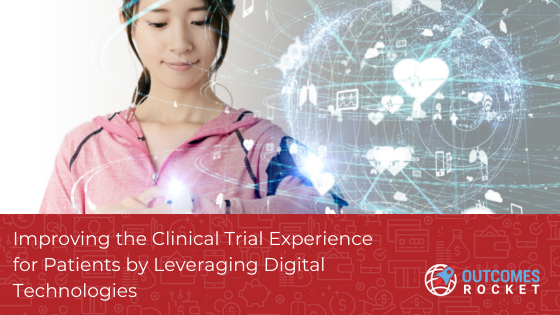
Every industry is still reeling from the impact of the COVID-19 crisis, healthcare arguably one of the most impacted sectors. The pandemic has spotlighted the industry’s flaws and disrupted the supply chain, tripling and even quadrupling the demand for vaccines, medications, diagnostics, medical equipment, and more.
But COVID’s impact was not purely negative. The pandemic was also a powerful catalyst of change and innovation. The healthcare industry has long been ripe for change, and the arrival of COVID-19 forced healthcare to embrace new technologies and processes to effectively deliver patient care. In normal circumstances, it takes 12 years to develop a new drug from bench to market (Kraljevic et al. 2014), but when the pandemic swept the nation, innovations happened at a much faster pace.
When the pandemic started, many clinical trials were put on hold. According to a study conducted by Sathian et al, the preventive measures (travel restrictions, social distancing, restrictions on mass gatherings, adherence to personal hygiene, use of face masks and) in combination with the lockdown of activities pose unprecedented challenges and obstacles for clinical research, and many clinical research organizations did not initiate new trials. Ongoing clinical trials also faced difficulties in recruiting new subjects and experienced lower follow-up rates.
In response, the clinical trial sector had to cope and innovate. Many clinical researchers turned to digital technologies to address the effects of the pandemic on clinical trials and Curebase is helping provide another solution to patients and medical providers.
Curebase is a provider of decentralized clinical research software solutions and services, partnering with contract research organizations or CROs as well as sponsors to offer the most flexible solutions for decentralized trials. Founded in 2017 and located in San Francisco, this start-up company is making clinical trials more accessible to participants through decentralized clinical trials.
There has been plenty of movement around DCT’s and how we move these trials to the home. What exactly is a decentralized clinical trial? Adam Samson, Director of Clinical Operations at Curebase, helped us gain a better understanding.
“In a decentralized clinical trial, rather than have everything occur at a central location, we take and make it such that most, if not all, of the activities, can occur remotely or at a place of the participants choosing. For instance, rather than having a participant drive to a research site, we can have our research coordinators at Curebase contact these participants remotely and walk through the process via video call. They can complete the consent process and qualification. We can pull in the doctor as well. And depending on the nature of the trial, if there are things that need to be in person, we can send a mobile phlebotomist or a mobile nurse to the participant’s house or a place of their choosing.,” he said.
Traditional clinical trials, on the other hand, require participants to go to a physical location where the trial will take place. This means driving back and forth each time a test is to be conducted. If you’re part of a research trial, just to keep showing up and to keep showing up while also suffering from pain, or lack of finances, or skipping work, can be challenging.
Curebase is finding ways to make clinical trials more efficient and cost-effective, ensuring equity and diversity in trial populations while maintaining the highest quality standards for data and patient safety.
For years, healthcare has been reluctant to embrace DCT. The clinical trials industry is heavily regulated and many researchers are risk-averse, but the advent of COVID helped speed this change.
In 2019, even before COVID hit, the FDA has already expressed support for the shift to decentralized clinical trials because of this model’s ability to enroll and retain participants, reduce administrative burdens on sponsors and investigators, improve data quality while ensuring patient’s comfort, and collect data faster through digital tech.
Curebase offers ready-to-launch solutions tailored to the needs of CROs and sponsors thanks to its software technology and virtual staff allow for clinical data collection almost anywhere.
The company’s flagship product is the user-friendly Curabase software that has all the technology needed for the participants, doctors, sponsors, and CROs to conduct the trial. According to Adam, e-source or the ability to collect data remotely is within the Curebase system.
Sponsors and CROs can add Curebase virtual sites to any trial to expand access to any geography. The easy-to-use software makes it convenient for providers to collect clinical data from diverse populations. It is also custom-tailored to complete the specific requirements for e-PRO, eConsent, and more.
The unified platform offers a continuous patient experience, automated workflow reminders, real-time analytics across all systems, and easy remote monitoring with 100% data viability.
Curebase recently raised a $15M Series A led by GGV Capital with participation from Xfund, Bold Capital, and several other institutional funds, bringing the fund to a total of $19M. Through this latest funding, the company can continually focus on platform development and expanding its market presence.
Curebase is currently supporting over a dozen clinical studies using decentralized research techniques, reaching patients wherever they live by leveraging easy-to-use software applications. During the pandemic, this start-up company operated six different COVID-19 studies using community-based pop-up drive-through testing sites across the country, collecting lots of data with amazing patient diversity. The platform has made it possible for researchers to collect information from participants around the country easily and more efficiently.
With decentralized clinical trials and Curebase, there is plenty to look forward to in the future. With Curebase, patient experience can be improved and clinical trials can be more enjoyable.
To listen to my full interview with Adam, click here: https://outcomesrocket.health/curebase/2021/05/.
According to the 2020 Centers for Disease Control and Prevention report, roughly 34.2 million Americans have diabetes,...
Read MoreAs a farmer, Rod was used to long days. He worked 18 hours a day, 7 days...
Read MoreWith investors receiving hundreds of pitch decks every year, how do you create a compelling presentation that...
Read More
Brittany Busse Co-Founder, President, and Chief Medical Officer at
ViTelHealth


Stephen Thorne Founder and CEO at
Pacific Dental Services

Keith Carlson Nurse Career Coach